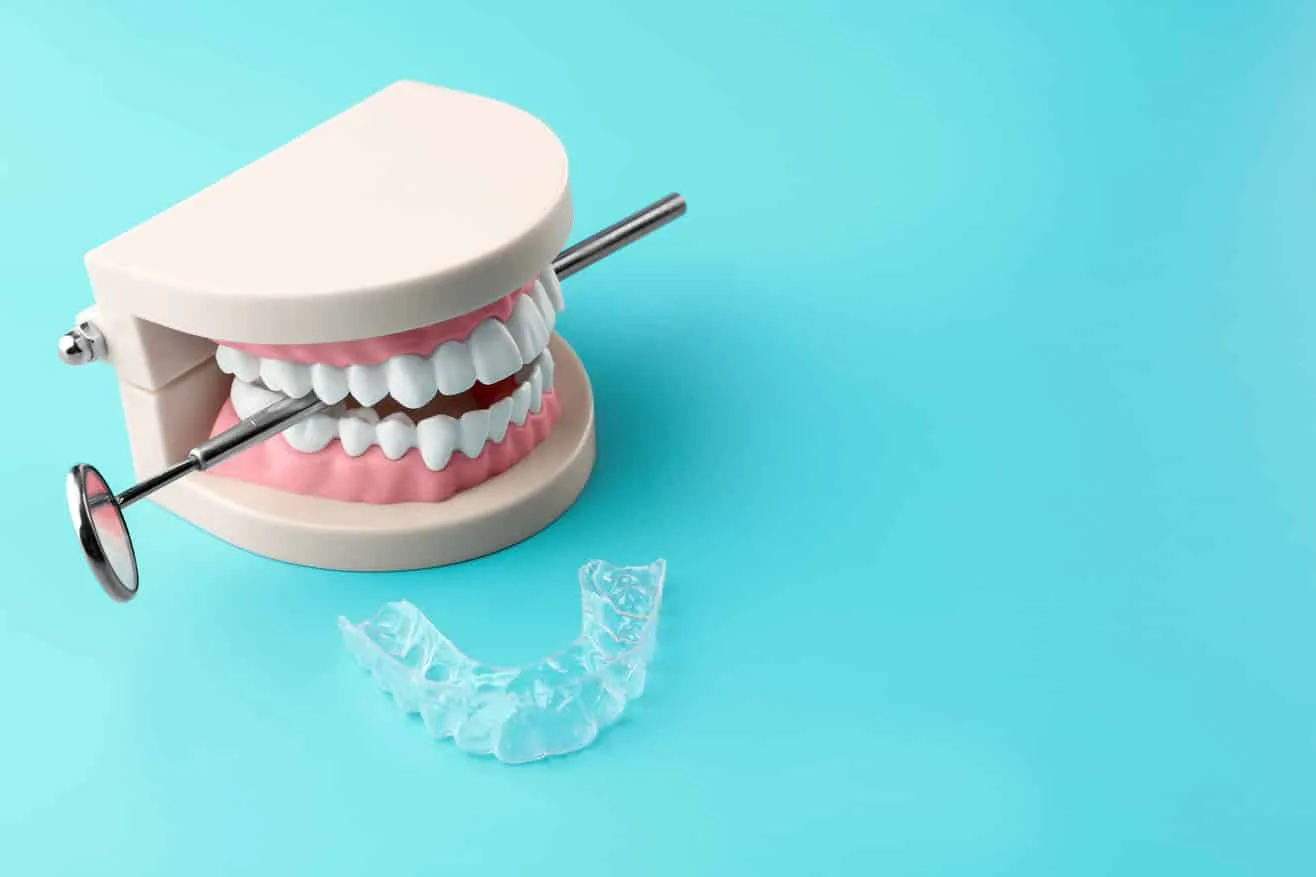Teeth grinding, or bruxism, is a condition where people unconsciously clench, grind, or gnash their teeth. While it often occurs during sleep, it can also happen during the day without you even noticing. Though it may seem like a harmless habit, teeth grinding can have serious repercussions for your dental health and overall well-being if left untreated.
In this post, we’ll explore the hidden dangers of teeth grinding, how it affects your health, and the effective steps you can take to protect yourself from its negative impact.
What Causes Teeth Grinding?
Teeth grinding can be triggered by a variety of factors, both physical and psychological. Some common causes include:
- Stress and Anxiety: Emotional stress is one of the leading causes of bruxism. High levels of anxiety can lead to jaw clenching and grinding, especially during sleep when you have no control over it.
- Sleep Disorders: Conditions such as sleep apnea or snoring can exacerbate teeth grinding during the night.
- Malocclusion (Misaligned Teeth): Misalignment of your teeth or jaw can contribute to grinding as your mouth attempts to find a comfortable resting position.
- Lifestyle Factors: Smoking, excessive alcohol consumption, and the use of stimulants such as caffeine can increase the likelihood of bruxism.
What Causes Teeth Grinding?
Teeth grinding can be triggered by a variety of factors, both physical and psychological. Some common causes include:
- Stress and Anxiety: Emotional stress is one of the leading causes of bruxism. High levels of anxiety can lead to jaw clenching and grinding, especially during sleep when you have no control over it.
- Sleep Disorders: Conditions such as sleep apnea or snoring can exacerbate teeth grinding during the night.
- Malocclusion (Misaligned Teeth): Misalignment of your teeth or jaw can contribute to grinding as your mouth attempts to find a comfortable resting position.
- Lifestyle Factors: Smoking, excessive alcohol consumption, and the use of stimulants such as caffeine can increase the likelihood of bruxism.
The Hidden Dangers of Teeth Grinding
While teeth grinding may seem like a minor inconvenience, it can have serious consequences for both your dental and overall health. Here are some of the hidden dangers associated with bruxism:
1. Tooth Damage
Chronic grinding can wear down the enamel, the protective outer layer of your teeth, leading to increased sensitivity and a higher risk of cavities. In severe cases, teeth may even crack or fracture.
2. Jaw Pain and TMJ Disorder
Teeth grinding puts excessive pressure on your jaw muscles, leading to pain and discomfort. Over time, this can cause temporomandibular joint (TMJ) disorder, a condition that affects the joints connecting your jaw to your skull. TMJ disorder can result in chronic headaches, difficulty chewing, and even jaw locking.
3. Gum Recession and Tooth Loss
Prolonged bruxism can cause gum recession, which exposes the roots of your teeth and leads to further oral health problems. In extreme cases, this condition can result in tooth loss as the excessive pressure weakens the supporting structures around your teeth. If you already have dental implants you may wonder how long do teeth implants last, while they are stronger than natural teeth they will also suffer damage from constant grinding.
4. Headaches and Facial Pain
People who grind their teeth often experience frequent headaches, especially upon waking in the morning. This is due to the overworked muscles in the jaw and face, which can also contribute to earaches and facial tension.
5. Sleep Disruption
Bruxism can disrupt your sleep patterns, leading to poor-quality rest and chronic fatigue. It may also affect your partner’s sleep, especially if your grinding is loud enough to be heard.
How to Manage and Prevent Teeth Grinding
If you suspect you grind your teeth, it’s essential to take action to prevent further damage. Here are some strategies that can help:
1. Use a Mouthguard
Wearing a custom-fitted mouthguard at night can protect your teeth from grinding and reduce the pressure on your jaw. Your dentist can create a mouthguard tailored to your bite for maximum comfort and effectiveness.
2. Practice Stress Management
Since stress is a significant contributor to bruxism, incorporating stress-reduction techniques such as meditation, deep breathing, or yoga into your routine can help reduce the frequency of grinding. Consider keeping a stress journal to track triggers and manage your emotional well-being.
3. Correct Your Bite
If your teeth are misaligned, orthodontic treatment may be necessary to correct your bite and reduce grinding. Your dentist or orthodontist can recommend options like braces, retainers, or even reshaping certain teeth to improve alignment.
4. Adjust Your Sleep Environment
If sleep apnea or other sleep disorders are contributing to your bruxism, it may be helpful to consult a sleep specialist. Addressing these underlying conditions can improve your overall sleep quality and reduce teeth grinding.
5. Limit Stimulants
Cutting back on caffeine and alcohol, especially in the evening, can help reduce nighttime teeth grinding. Avoiding these substances will not only protect your teeth but also promote more restful sleep.
When to See a Dentist
If you experience frequent headaches, jaw pain, or tooth sensitivity, it’s crucial to see your dentist for a proper diagnosis. They can help identify whether bruxism is the cause and recommend appropriate treatments to prevent further damage.
Conclusion
Teeth grinding is more than just an annoying habit—it can have serious and long-lasting effects on your health if left untreated. From damaging your teeth to causing chronic pain, the dangers of bruxism are often hidden but impactful. By taking steps to manage stress, wear a mouthguard, and seek professional help, you can protect your teeth and your overall well-being.
